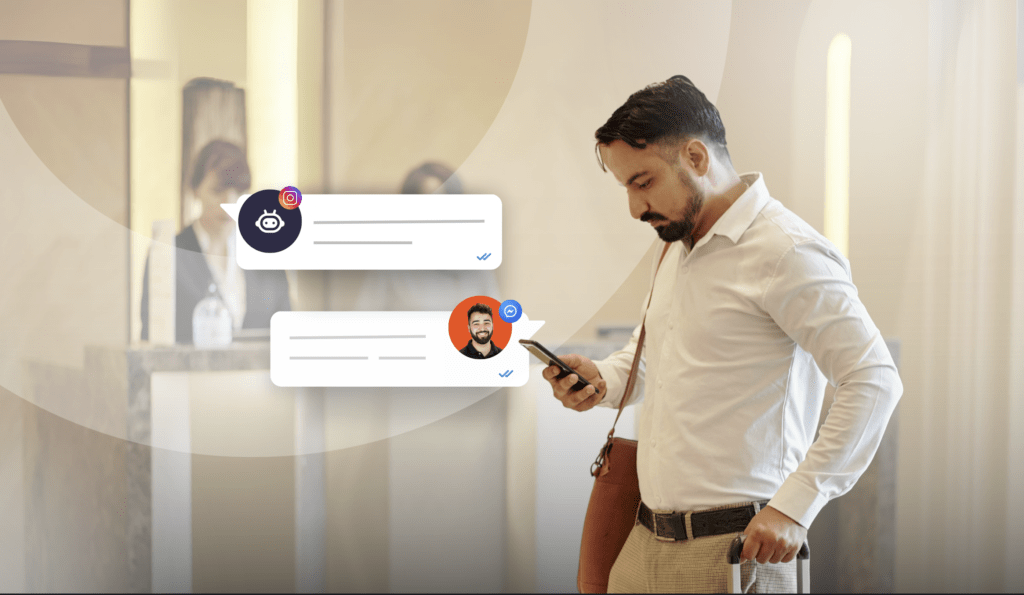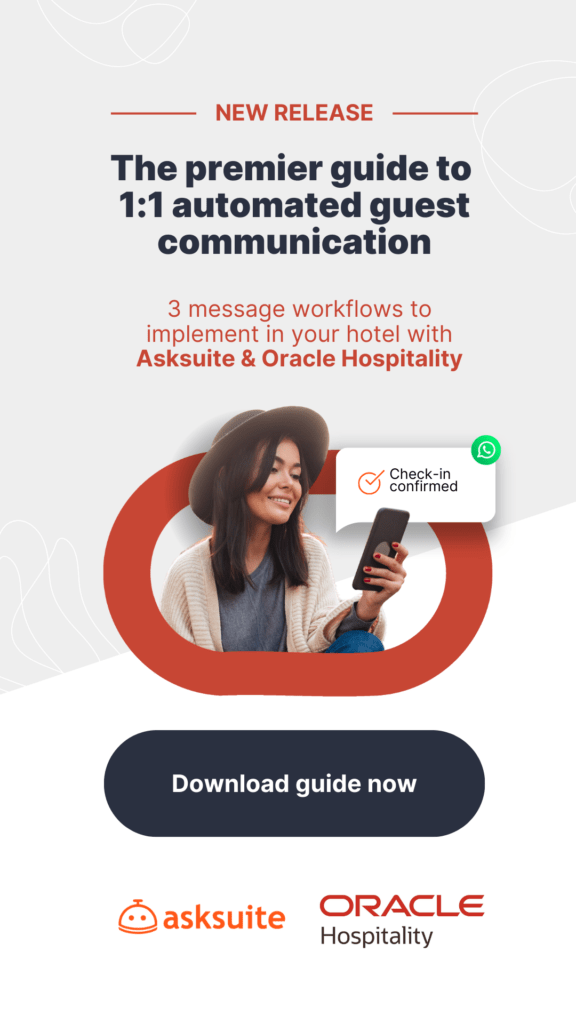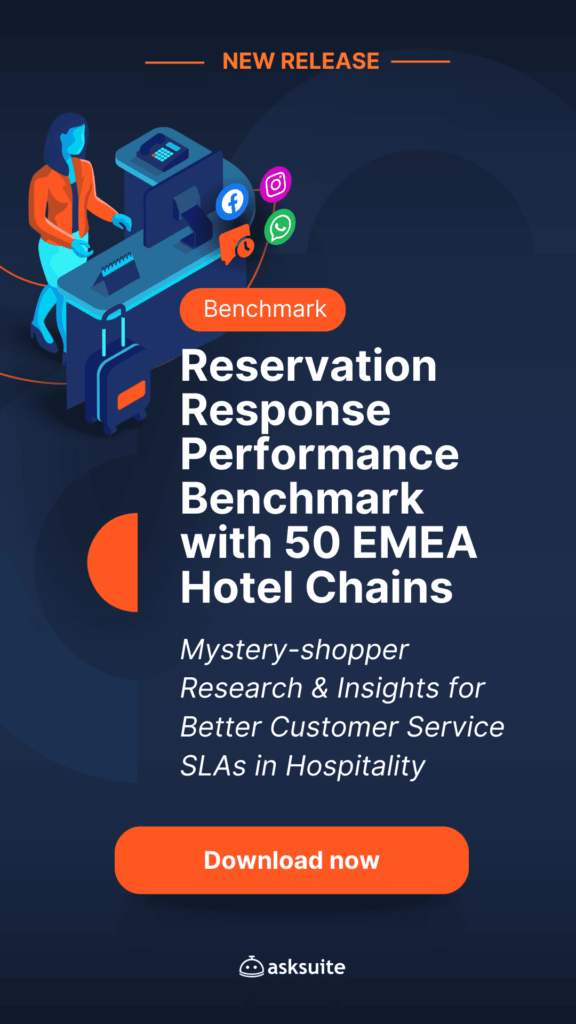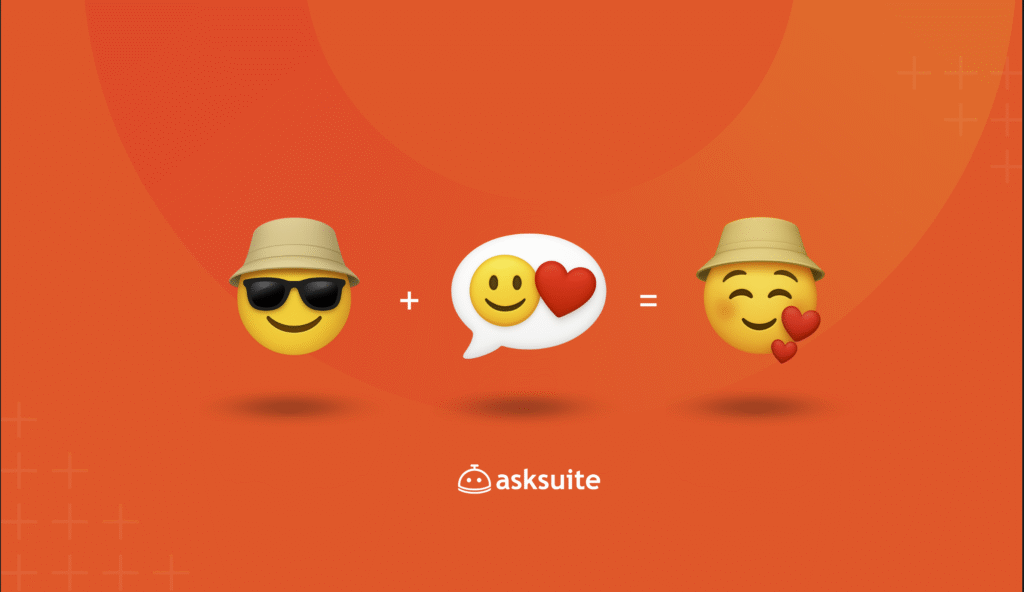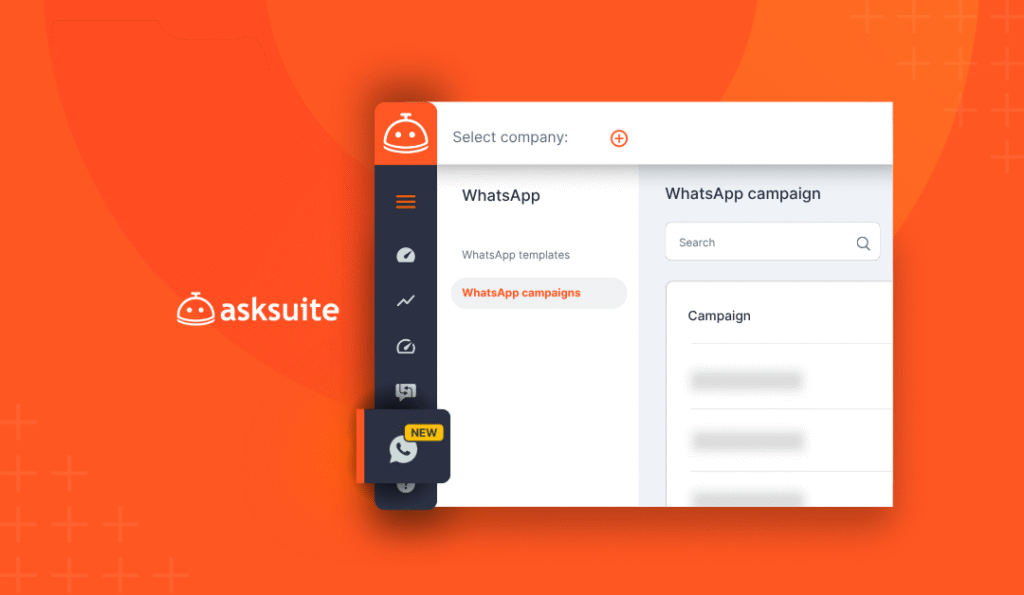Discover how a hotel chatbot can streamline communication, enhance guest experiences, and drive more direct bookings
Managing traveler communication efficiently remains one of the biggest challenges in the hotel industry. From responding to FAQs to handling booking inquiries, ensuring a seamless customer experience demands significant time and effort—especially when these processes are fully manual. That’s where hospitality-driven tech tools like hotel chatbots come in.
By integrating a chatbot into their communication strategy, hotels can not only lighten the workload on their teams but also enhance customer satisfaction and increase direct bookings. Studies show that 69% of customers prefer interacting with a chatbot due to its speed in answering simple questions. Fast, effective responses can be the deciding factor between a potential guest choosing your hotel or a competitor’s.
In this guide, we’ll explore everything you need to know about hotel chatbots—from their key benefits to practical implementation strategies. Leveraging this technology can optimize operations and help you stay ahead in an increasingly competitive market.
What is a hotel chatbot?
A hotel chatbot is an AI-powered reservation agent designed to facilitate direct communication between hotels and travelers. It automates responses to common inquiries, assists with reservations, and keeps your hotel accessible across multiple channels in real-time. Integrated with websites, mobile apps, and messaging platforms like WhatsApp, these tools ensure instant, frictionless interactions without requiring constant human intervention.
Unlike traditional customer service models reliant on manual replies, a hotel chatbot can handle multiple conversations simultaneously, providing instant responses in the traveler’s language. From addressing check-in times to suggesting local attractions, chatbots elevate the guest experience while freeing up staff to focus on high-value tasks.
AI-powered chatbots can work both with predefined scripts and leverage natural language processing (NLP) to interpret complex queries, learn from past interactions, and deliver more intuitive, human-like responses. As seamless communication becomes a top priority in hospitality, chatbots are proving to be essential for upgrading service, driving direct reservations, and streamlining the traveler journey.
What are the key benefits of a hotel chatbot?
1. 24/7 support without additional staffing costs
A chatbot assures that your hotel remains accessible around the clock, catering to international travelers across different time zones. With 47% of hospitality customer service requests occurring outside standard business hours, according to Asksuite’s data, an AI-driven chatbot guarantees that no inquiry goes unanswered—reducing response delays and missed booking opportunities.
2. Instant, high-quality responses that drive conversions
Travelers expect quick, accurate answers about room availability, hotel amenities, and policies. Chatbots provide real-time responses, eliminating wait times and streamlining the booking process. A recent Asksuite benchmark of EMEA hotel chains revealed that properties using chatbots often missed opportunities to enhance engagement—such as failing to send images along with price quotes, which can significantly influence booking decisions.

3. Reduced staff workload
By managing repetitive inquiries, chatbots free up hotel employees to focus on more complex interactions, such as group bookings or VIP guest experiences. This shift improves efficiency, relieves your staff, and enhances overall service quality.
Case Study: Galgorm Resort, an Asksuite client, saw a 23x ROI after implementing the AI Reservation Agent. Beyond revenue growth, the tech solution significantly eased the staff pressure, allowing employees to prioritize personalized guest interactions on site. Access the complete success case here!
4. Increased direct bookings and higher profit margins
Beyond answering questions, a chatbot actively guides travelers through the reservation process—suggesting alternative dates and directing guests to the checkout page. This proactive engagement minimizes reliance on OTAs, increasing direct revenue and improving profit margins.
5. Centralized omnichannel communication
Travelers interact with hotels through multiple touchpoints, from websites to messaging apps. A chatbot flawlessly integrates across all platforms, securing consistent and unified communication. This prevents travelers from having to repeat themselves, creating an effortless journey from pre-arrival inquiries to post-stay follow-ups.
How do hotel chatbots drive more direct bookings & optimize operations?
1. Guiding travelers through the reservation journey
Many travelers hesitate before finalizing a booking due to lingering questions or unclear policies. Chatbots eliminate these uncertainties by offering immediate answers, showcasing room options, and even providing exclusive incentives for direct reservations—turning undecided visitors into confirmed guests.
2. Preventing booking abandonment with proactive engagement
It’s not unusual for travelers to start the booking process but fail to complete it. Chatbots detect these drop-offs and re-engage potential guests by sending personalized reminders, addressing concerns, or offering time-sensitive promotions, ultimately recovering lost revenue opportunities.
3. Streamlining hotel operations & staff productivity
By automating routine queries and reservation confirmations, chatbots reduce administrative workload, allowing hotel teams to focus on high-quality guest interactions in person – as with the Galgorm Resort. This creates a more productive and guest-centric hospitality environment.
Hotel Chatbot or Live Chat: which one is best?
Both chatbots and live chat solutions enrich communication with travelers, but each serves a distinct purpose. Understanding their strengths helps hotels implement a strategy that balances automation with personalized service.
Hotel Chatbot: Automation & Scalability
Advantages:
- Available 24/7, ensuring immediate responses across time zones.
- Eliminates wait times by handling multiple inquiries simultaneously.
- Reduces staffing costs while improving efficiency.
- Enhances direct bookings with AI-driven suggestions.
- Directs the interaction to a human agent when needed.
Limitations:
- Less suited for complex or highly personalized requests.
- Lacks emotional intelligence, which can be critical in sensitive situations.
Live Chat: Personalized, Human Interaction
Advantages:
- Ideal for handling unique traveler concerns and special requests.
- Builds trust through direct human engagement.
- Flexible for unexpected situations that require nuanced communication.
Limitations:
- Requires dedicated staff, which may not be feasible 24/7.
- Longer response times if multiple travelers are waiting for assistance.
Rather than choosing one over the other, the most effective strategy combines both solutions. Chatbots efficiently manage high-volume routine inquiries, while live agents step in for more complex interactions—ensuring optimal efficiency and customer satisfaction.
What’s the best hotel chatbot?
Selecting the right chatbot requires evaluating key features that align with your hotel’s operational needs:
- AI Capabilities: Does it handle multiple queries in a single question?
- Integration: Can it connect with your PMS, booking engine, and CRM?
- Multichannel Functionality: Does it operate across website chat, WhatsApp, and social media?
- Customization: Can it be tailored to reflect your hotel’s brand voice and service approach?
- Multilingual Support: Does it cater to international guests?
- Performance Insights: Does it provide analytics to track engagement and conversions?
To maximize efficiency, hotels should invest in a solution that not only automates interactions but also fosters meaningful guest connections—driving both operational excellence and revenue growth.
Want more insights?
If you’re looking for strategic insights on chatbot implementation in hospitality, download Asksuite’s exclusive benchmark analyzing the response times, chatbot effectiveness, and live chat interactions of 50 EMEA hotel chains.
Don’t miss the chance to understand how relevant hotel chains are dealing with potential guests and see how your hotel compares!

This blog post was originally written on October 17, 2019 and updated on March 26, 2025.
